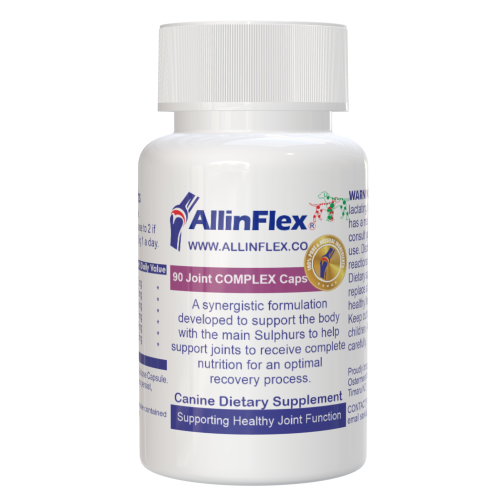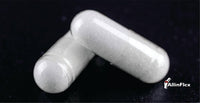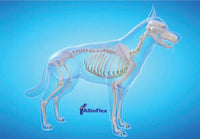Best Hyaluronic acid for Dogs is of high molecular weight
In dogs, Hyaluronic acid supplements are used to aid joint health and mobility.
When it comes to selecting the best hyaluronic acid supplement for your dog, be aware that high molecular weight hyaluronic acid is considered to be a more effective and beneficial form of hyaluronic acid for dog joint health.
The main benefits of high molecular weight hyaluronic acid is its ability to provide long-lasting hydration to the dog joints. Because the larger molecules are more difficult to break down, they can remain in the joints for longer periods of time, providing sustained hydration and lubrication.
Hyaluronic acid is good for dog's joints and mobility
Supplementing a dog's diet with hyaluronic acid aids the growth and repair of cartilage and connective tissue to maintain healthy joint function.
Hyaluronic acid occurs naturally in the dog's body and plays an important role in joint and tissue health especially in lubrication and cushioning. Cushioning helps friction and acts like a shock absorber.
Combining Glucosamine and Chondroitin with Hyaluronic acid in one dog supplement can enhance the effectiveness of all ingredients.
Glucosamine and Chondroitin are commonly used in supplements for dogs with joint issues. Glucosamine is a natural compound that helps to build and repair cartilage, while Chondroitin is a molecule that helps to protect and lubricate the dog's joints.
When combined with Hyaluronic acid, these joint supplements work together to provide comprehensive joint support for your dog.
Hyaluronic acid is generally considered safe for dogs
However, like any dog supplement, it may cause side effects in rare cases. Potential side effects after feeding a supplement with hyaluronic acid to your dog can include digestive issues such as vomiting, diarrhea, or loss of appetite. Hyaluronic acid may interact with certain medications, such as blood thinners or nonsteroidal anti-inflammatory drugs (NSAIDs), which could increase the risk of bleeding or other complications.
If your dog experiences any unusual reactions from hyaluronic acid supplements, consult your veterinarian.




